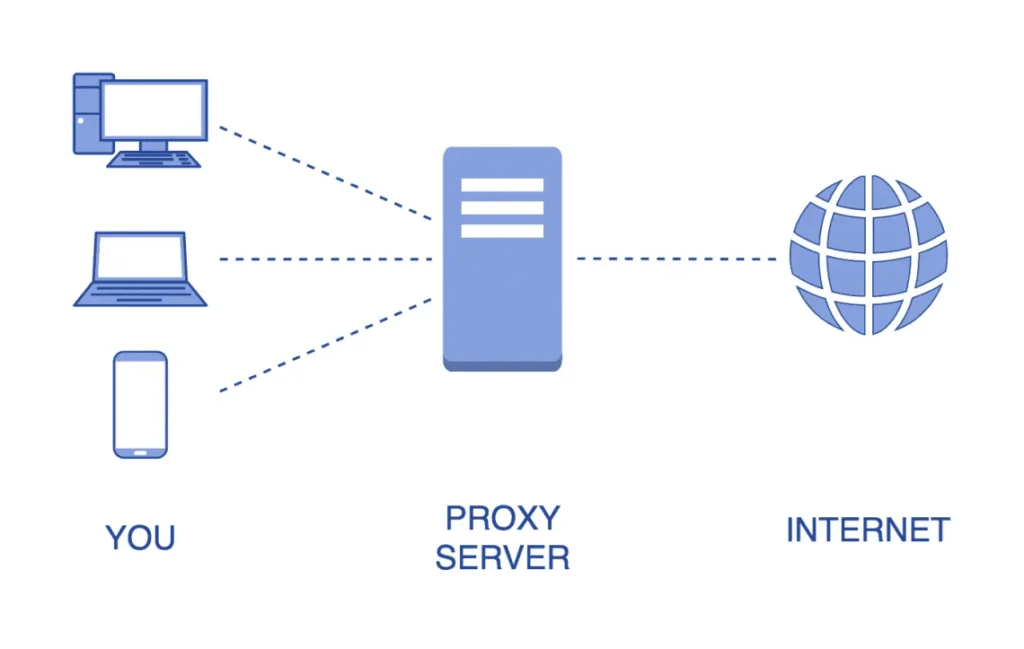The Forrester Wave™: Cybersecurity Risk Ratings Platforms, Q2 2024
Enhancing Online Security: The vital role of proxies
Ensuring online security has become paramount in today’s interconnected, digital world. With the proliferation of cyber threats ranging from data breaches to identity theft, individuals and businesses alike are constantly seeking ways to fortify their defenses against malicious actors. One tool that plays a crucial role in this endeavor is the proxy server. But what exactly does a proxy do for your online security, and how does it work? Let’s delve into the intricacies of proxies and their significance in safeguarding your digital footprint.
At its core, a proxy server acts as an intermediary between your device and the internet. Instead of directly connecting to websites or online services, your requests are routed through the proxy server, which then forwards them to the destination. This process effectively masks your IP address, the unique identifier of your device on the internet, and substitutes it with the IP address of the proxy server.

Source: Medium
Here are several key ways in which proxies contribute to enhancing online security:
1. Anonymity and privacy protection
By hiding your IP address, proxies help anonymize your online activities, making it difficult for websites, advertisers, and malicious actors to track your digital footprint. This anonymity enhances privacy, preventing unauthorized parties from monitoring your online behavior or collecting personal information without your consent.
2. Access control and geo-blocking circumvention
Proxies enable users to bypass geo-blocking restrictions imposed by websites or streaming services. By connecting through a proxy server located in a different region, users can access content that may be restricted or unavailable in their own location. Additionally, proxies can be used to circumvent internet censorship imposed by governments or organizations, granting users unrestricted access to information and online services.
3. Content filtering and malware protection
Many organizations employ proxies to enforce content filtering policies within their networks. By intercepting and inspecting web traffic, proxies can block access to malicious or inappropriate websites, thereby mitigating the risk of malware infections and data breaches. Proxies can also cache frequently accessed content, improving network performance and reducing bandwidth usage.
4. Enhanced security for remote access
In the era of remote work, expanding attack surfaces, and decentralized teams, secure access to corporate networks is paramount. Proxies facilitate secure remote access by acting as a gateway between remote users and internal network resources. By authenticating users and encrypting data transmission, proxies help safeguard sensitive information against unauthorized access or interception by cyber threats.
5. Protection against DDoS attacks
Distributed Denial of Service (DDoS) attacks pose a significant threat to online services by overwhelming servers with a flood of malicious traffic. Proxies can mitigate the impact of DDoS attacks by filtering incoming traffic and blocking malicious requests before they reach the target servers. By distributing traffic across multiple proxy servers, organizations can effectively absorb and mitigate DDoS attacks, ensuring uninterrupted service availability for legitimate users.
6. Network Performance Optimization
In addition to enhancing security, proxies can also optimize network performance by caching content, compressing data, and prioritizing traffic based on predefined policies. By reducing latency and bandwidth consumption, proxies improve the overall browsing experience for users while minimizing the strain on network infrastructure.
While proxies offer numerous benefits for online security and performance, it’s essential to choose the right type of proxy and configure it correctly to maximize its effectiveness. Different types of proxies, such as HTTP proxies, SOCKS proxies, and VPNs (Virtual Private Networks), offer varying levels of security and functionality, catering to diverse use cases and requirements.
Final thoughts
Proxies play a crucial role in bolstering online security by anonymizing user identity, circumventing access restrictions, filtering malicious content, and optimizing network performance. Whether used for personal privacy protection, corporate security, or mitigating cyber threats, proxies are indispensable tools in safeguarding the integrity and confidentiality of online communications. By understanding the role of proxies and implementing appropriate security measures, individuals and organizations can navigate the digital landscape with confidence and peace of mind.


